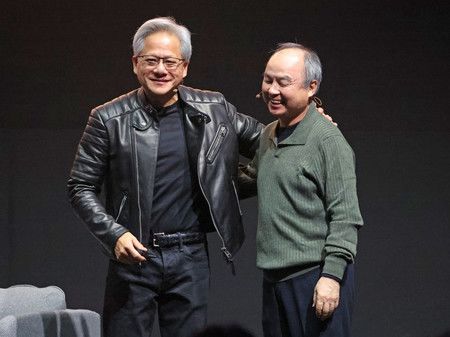At the AI Summit organized by NVIDIA in Tokyo, CEO Jensen Huang emphasized Japan’s unique position to become a “global leader” in integrating artificial intelligence (AI) into society. Drawing on Japan’s cultural affinity for robotics and the strength of its local manufacturing sector, Huang underscored the nation’s potential to spearhead the AI-driven transformation in various industries.
Huang’s speech highlighted Japan’s deep-rooted fascination with robots, as reflected in popular works like Mazinger Z and Gundam. These cultural elements, combined with Japan’s advanced manufacturing capabilities, provide the perfect foundation for the country to lead a “robotic AI revolution.” The event was attended by notable industry figures, including Masayoshi Son, Chairman and CEO of SoftBank, who joined forces with NVIDIA to announce a series of collaborations in AI development.
SoftBank and NVIDIA’s Collaboration: A New Chapter in AI Innovation
One of the key collaborations unveiled at the summit was SoftBank’s plan to build Japan’s most powerful AI supercomputer using NVIDIA’s advanced Blackwell chips. This partnership is expected to push the boundaries of AI computing in Japan, providing the technological infrastructure needed to accelerate AI research and applications.
While Huang acknowledged that Japan’s information technology (IT) companies “could have been bolder over the past three decades,” he emphasized that it’s “not too late” for the nation to catch up in the AI race. With strategic collaborations like the one between SoftBank and NVIDIA, Japan is poised to regain its competitive edge in global AI innovation.
Japan’s Path Forward in the AI Era
The summit also touched upon the broader AI landscape in Japan. Over the past few years, the country has made strides in AI adoption across sectors such as robotics, healthcare, and manufacturing. However, there is still room for growth, especially in software development and AI integration across traditional industries.
Huang’s call to action for Japan to embrace AI more aggressively resonates as the global race for AI supremacy intensifies. Countries like the United States and China have already made significant investments in AI infrastructure, but Japan’s existing expertise in robotics combined with renewed AI focus could give it a competitive advantage.
Japan stands at a critical juncture in the AI revolution. With its rich cultural legacy in robotics and a robust manufacturing sector, the country has the potential to be a formidable player in the global AI landscape. NVIDIA’s recent collaboration with SoftBank to develop advanced AI computing infrastructures marks a significant step forward. However, as Jensen Huang pointed out, Japan must act decisively and boldly to seize the opportunities AI presents.
By fostering strategic partnerships and continuing to innovate in AI technologies, Japan could indeed lead the world in the next phase of the AI revolution. With the right focus, the nation can establish itself as a hub for AI-driven advancements, reshaping industries and society in the process.


